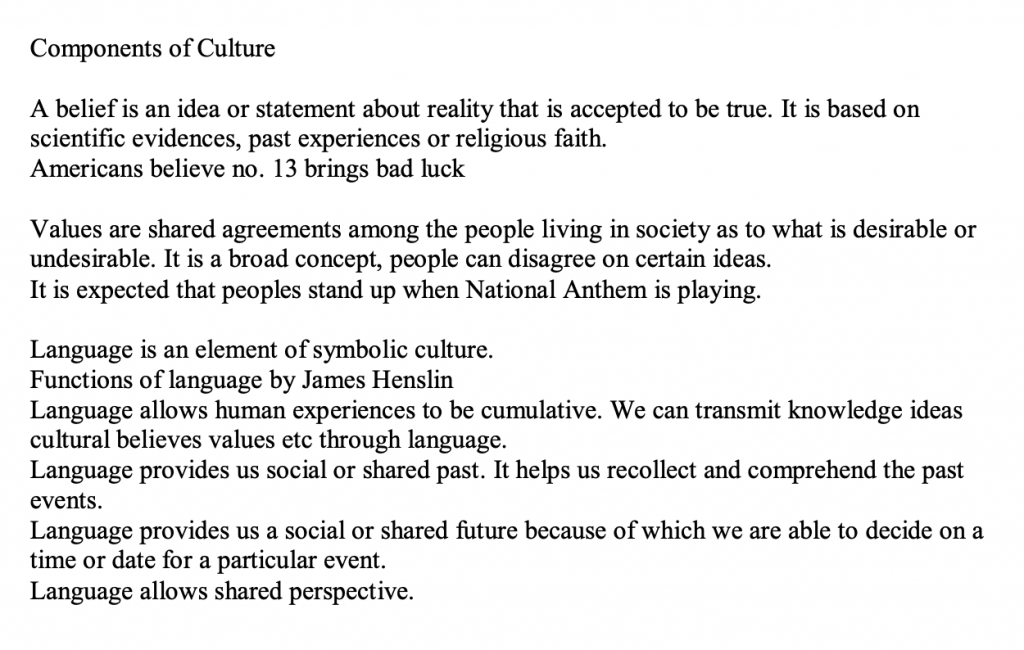Cultural Diversity and Multiculturalism in Sociology (Grade A)
Summary:
The text discusses various components of culture, including beliefs, values, language, norms, laws, and sanctions. Beliefs are ideas accepted as true, values are shared agreements on desirable or undesirable, and language allows for communication and transmission of cultural knowledge. Norms are established standards of behaviour, including explicit and implicit norms, folkways, and mores. Laws are formal rules enforced by the state. Ethnocentrism and xenophobia are discussed as tendencies to evaluate one’s culture as superior and fear of foreigners, respectively. Cultural shock and cultural relativism are the psychological and social challenges of encountering different cultures and evaluating aspects of a culture within its own context. Cultural diversity and multiculturalism are explored as principles of coexistence and appreciation of different cultures. Cultural change, diffusion, and cultural lag are discussed, emphasizing that elements of culture change at different paces. The text also covers topics related to social groups, including primary groups characterized by personal relationships and secondary groups focused on specific goals or activities. Reference groups are discussed as points of reference for evaluation and decision-making. The text further examines social roles, status, status inconsistency, ascribed and achieved statuses, role conflicts and strains. Additionally, the concepts of deviance and social control are explored, highlighting different theories explaining deviant behaviour, such as biological, psychological, and sociological theories. The importance of social control through informal and formal means and the use of positive and negative sanctions is also discussed.
Excerpt:
Cultural Diversity and Multiculturalism in Sociology
Components of Culture
A belief is an idea or statement about reality that is accepted to be true. It is based on scientific evidence, past experiences or religious faith. Americans believe no. 13 brings bad luck.
Values are shared agreements among society regarding what is desirable or undesirable. It is a broad concept; people can disagree on certain ideas. It is expected that people stand up when National Anthem is playing.
Language is an element of symbolic culture—functions of language by James Henslin. Language allows human experiences to be cumulative. We can transmit knowledge, ideas, cultural beliefs, values etc through language.
Language provides us with a social or shared past.


Reviews